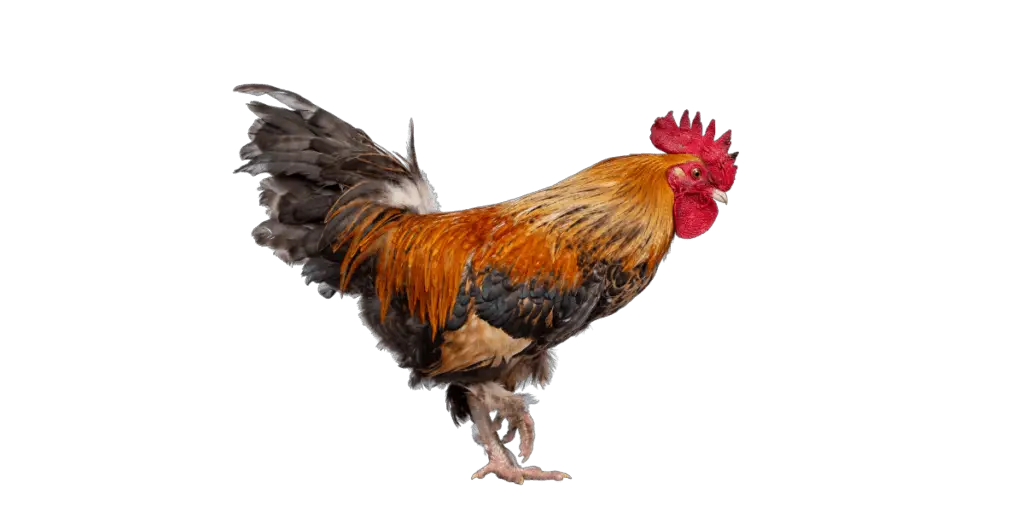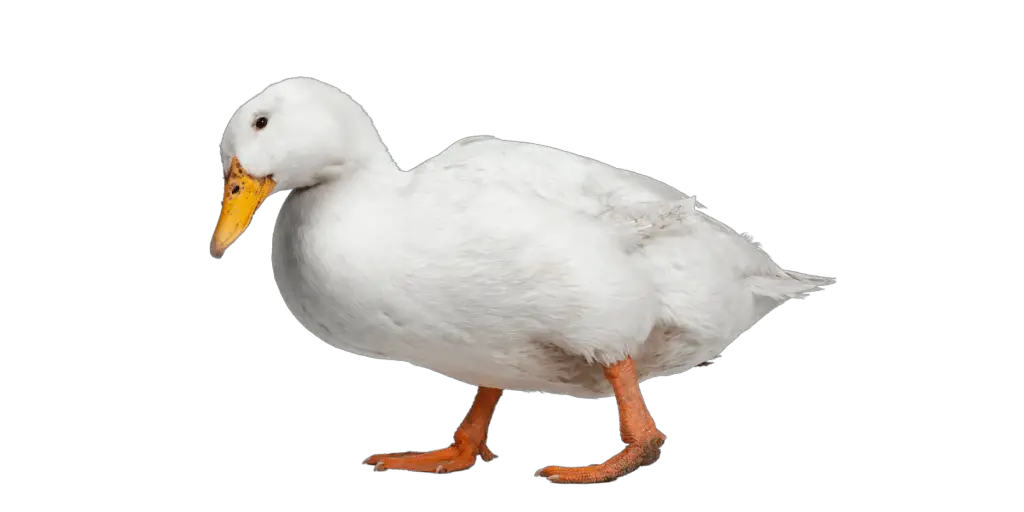Table of Contents
Chickens versus ducks for your backyard – which way to go?
An aspiring domestic poultry owner has literally hundreds of species of chicken, ducks, and other fowl to choose from.
One of the early decisions to make if you are set on keeping a flock of your own is whether chickens or ducks will be the right choice for you.
Ducks and chickens are a common starter animal for homesteads, smallholdings, and backyards as they are productive and easygoing livestock if you treat them right.
Ducks and chickens aren’t the same.
Though both types of poultry can thrive in your backyard, you need to be decided on which would be best for you as they differ in many ways and each animal has specific requirements that you will have to meet.
This concise guide will help you settle on the right animal with a breakdown of the key differences between ducks and chickens as well as the advantages and disadvantages of chickens and ducks for you to weigh.
What is a chicken?

Gallus gallus domesticus is the world’s most common bird with a global population of over 23 billion as of 2018. Chickens are a social species, living and raising their young in flocks and foraging an omnivorous diet of grains and seeds, insects, and even lizards and small mice.
You can always pick out roosters with the striking iridescent plumage and pert combs. Hens also have distinctive combs and wattles.
Chickens are known for their pecking order with hierarchical relationships within the flock that are fiercely maintained.
What is a duck?

Ducks a diverse group of members of the Anatidae waterfowl family. They have been domesticated for thousands of years and are a favored producer of eggs, down, and meat, with over 3 billion slaughtered annually per year.
Most domestic ducks are descendants of the Mallard family of ducks.
Domestic ducks require access to a source of water, either a pond or lake or a deep water dish. Ducks will dabble in mud, foraging for freshwater insects, crustaceans, and amphibians.
Key differences between chickens and ducks
- Ducks swim – chickens do not swim for long and can drown quickly due to waterlogging of their feathers.
- Ducks have webbed claws that aid in swimming.
- Ducks have oil glands that waterproof their feathers.
- Chickens have claws that are effective in scratching the ground for insects and grubs.
- Ducks have a broad, flat beak which is perfect for foraging in mud for their food.
- In their natural habitat, ducks nest on the ground while chickens roost.
A point to point comparison of keeping backyard chickens versus backyard ducks
[A] Housing
Both backyard hens and ducks will need to have predator-proof enclosed housing which can be secured at night. Ducks nest on the ground but chickens will require a roost where they can perch to rest at height.
As they are on the ground they will need plenty of space as they do not fare well with confinement.
Chickens that do not have their feathers clipped are capable of flying at a greater height than domestic ducks, which are largely flightless, and will need fencing of a suitable height.
A well-cared-for flock of ducks will be content with life on the ground and can have lower fencing.
[B] Meat
Chickens and ducks are equally productive for meat, but chicken will provide you with both which and dark meat. If you are raising your backyard poultry for meat you will find the process is the same for both ducks and chickens. Plucking ducks can be harder work as they have much more dense feathering.
[C] Egg production
Chickens appear to be the obvious choice for a daily clutch of fresh eggs but in many ways, ducks exceed chickens as efficient and effective layers. Great laying duck breeds like the Khaki-Campbell not only outperform backyard hens but remain productive for far longer than chickens which often taper off significantly after a couple of years.
The ducks also lay regularly for longer in the year, even when the days start to shorten. You will find that duck eggs are larger and they tend to lay at the same time every day.
Chickens have anything between a 22 and 26-hour laying cycle meaning that laying happens at varying times.
[D] Diet
Neither of these backyard poultry species is particularly high maintenance and as long as they have access to exercise their natural foraging behaviors you will find that they are quite content.
Ducks have the advantage of being able to forage mud and a willingness to nibble greenery. Snails and slugs are not high on the chicken favorite list but ducks love them.
Perhaps this is why gardeners love to have both types of poultry on hand in the garden. Here, gardener Huw Richards talks about why he keeps ducks in his garden:
[E] Temperament
Both chickens and ducks are gregarious animals and with effort can be tamed and enjoyed by their owners.
Ducks are very group-oriented. If you spot one you will find they are all together as move as a group. This can make domestic ducks vulnerable to predators as they can lack the initiative to escape.
Chickens are far more independently-minded and can bring drama to the coop with insurrections and fights over their highly-preserved pecking order.
[G] Water
Water is a dealbreaker for ducks. If you cannot provide it in adequate quantities you cant keep ducks – Period.
This is a key reason for backyard hens being more popular, as their water requirements stretch as far as unlimited access to the water drinker.
Ducks on the other hand require water to bathe in so that their feathers remain properly conditioned and groomed. Ponds are preferable put a paddling pool in the yard could to the job as long as it is regularly changed and kept sanitary. Be prepared for a muddy mess as ducks will make the most of their water.
[H] Noise
Chickens know how to raise the roof with noise being a noted disadvantage of keeping hens and roosters. Ducks are much quieter by comparison.
[I] Weather
If you are in the more northern zones of North America you are likely to find that ducks can remain active in cold, wet, damp conditions for longer than chickens as their well-insulated down will keep them warm and dry. The laying of ducks is less affected by seasonal changes in daylight hours too.
Rounding up
If you are more familiar with chickens as backyard poultry or pets, the utility of ducks may come as a surprise. Waterfowl are often underrated as backyard livestock, but if you can satisfy their water requirements you may find them productive and easy-going residents.
If your property is large, or you are homesteading you may choose to keep ducks and chickens, which tend not to bother one another if they come into contact.




